How To Tell If
Watching The Eclipse
Damaged Your Eyes
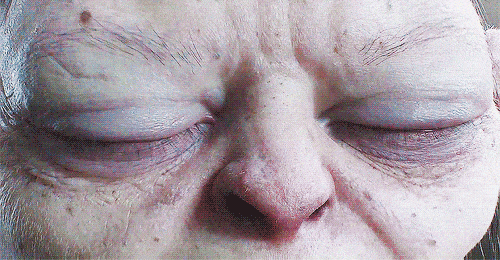
August 21, 2017
Andrea Hsu
Less than an hour after the Great American Eclipse completed its coast-to-coast show on Monday, people's fascination with the sun and the moon quickly turned to concern about their eyes.
But if you did steal unprotected glances skyward, and especially if
your eyes felt funny or hurt a little afterward, you might be wondering
how you'll know if you've done any long-term damage.
To answer that question, we once again turned to Ralph Chou,
a professor emeritus of optometry and vision science at the University
of Waterloo, in Ontario, Canada, and a leading authority on the damage
the sun's rays can do to the eye's retina.
This interview has been edited for length and clarity.
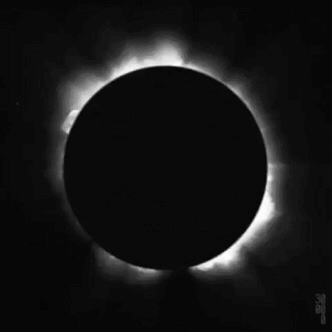
Interview Highlights
How would somebody know if they've done any damage?
It
takes at least 12 hours before we can tell if anything has happened.
The thing is, if people just saw the sun briefly without a protective
filter — just a fraction of a second — the chances they've hurt
themselves are very low.
If they looked at the display of a camera or a smartphone
but didn't look through the optics at the sun, they're in no danger.
While it may look bright, it isn't all that bright by comparison. They
were not getting direct optical radiation from the sun in that case.
It's just a duplicate of whatever the sensors see, and there's no danger
in that.
If, for some reason, they forgot to use their filters
entirely — well, [permanent damage is] always a possibility, but I
would hope that after all the publicity, that that didn't happen.
What might someone's symptoms be if they didn't use any filters and looked at the sun?
It
wouldn't be until 12 hours later that they would even notice their
vision was changing. It might not be until [the next] morning when they
wake up and realize that they can't see that well.
[The
symptoms would be] blurred vision, where the very center of the vision
might have a spot, or multiple spots, that were missing in their vision —
that were very, very blurred. Around it, there might be some clear
spots. It really depends on exactly what happened, and what kind of
injury there is at the back of the eye. [As Chou told us earlier, this
kind of vision loss can get better over several months to a year. But about half the time, it's permanent.]
What should someone do if they're worried there could be damage? Should they stay indoors or wear sunglasses?
Seeing
an optometrist is faster than getting to see an ophthalmologist. If
there is damage, the optometrist would refer the individual to the
ophthalmologist for further assessment and management in any case.
The
damage, if any, would not be mitigated by staying indoors or wearing
sunglasses, but these are ways to make vision more comfortable as the
individual recovers.
I used an eclipse viewer that came
from a reputable seller. But even after looking at the sun for a few
seconds through that, I felt like my eyes felt weird and needed time to
adjust.
The thing is, if you look for a sustained
period through the filter, you're stimulating only one set of
color-sensitive receptors at the back of the eye. So they'll get more
work than, say, the receptors that are responsible for green and blue
light. And the result will be that for a brief time, you'll suffer the
same kind of after-image effects that you get from looking at a very
bright headlight or flash from a camera.
You'll recall how
you'll have spots in your vision that are sort of the opposite effect of
what you normally see. That kind of thing will happen if you look at
the sun for an extended period of time. It'll feel a bit weird as your
eyes recover from that. It doesn't mean you've hurt yourself. It's just
that you've overloaded some of the photo receptors, and it takes a while
to get back to full function. In most cases, it's going to be just a
few minutes. There's no lasting damage from that. You would have to be
staring at an extremely bright image for minutes at a time before you
started to get any clinically significant damage.
So what did you think about the eclipse?
For
me, this was Total Eclipse No. 19. It was an extremely good eclipse. We
had really beautifully clear sky [in Salem, Ore.]. It was just a
beautiful sight. So, wow. It was great.
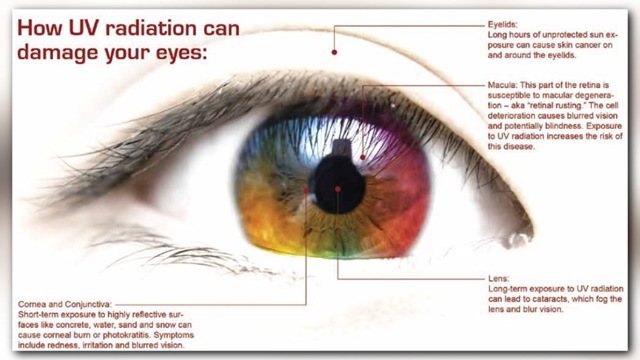
Signs of damage to watch for include sensitivity to light, eye pain or
loss of vision in one or both eyes, according to vision experts.
Everyone's googling "my eyes hurt" today
However, even in the absence of eye pain, it is still likely that the
eyes have experienced some level of damage, said Dr. Howard Purcell,
senior vice president of customer development at Essilor of America.
“With
some diseases like glaucoma, there’s no pain associated with it,” he
said. “The same thing [applies] here; the individual is unlikely to feel
any pain at all.”
Following a solar eclipse in the United Kingdom in 1999, public health officials reported
a surge of calls from those with apparent eye injuries. A week after
the eclipse, at least 14 cases of permanent damage were confirmed.
It has been stressed countless times that ISO-approved glasses are the only kind that should be worn while viewing the main event.
The American Academy of Ophthalmology and the American Astronomical Society recommend wearing eclipse glasses that are ISO 12312-2 certified.
“Be
aware that it doesn't matter if glasses are darker or polarized,” said
Dr. Lisa Park, ophthalmologist and associate professor of ophthalmology.
“The most important criteria is that the wavelengths of light are
blocked by the filter, which is why the certification is relevant,” Park
said.
The only period in which it’s safe to remove protective
eye gear is during the few brief minutes of totality, when the moon
eclipses the sun completely.
“Even if there’s an edge of the sun that’s still visible, you’re still at risk,” Purcell said.
While viewing the eclipse without proper eye gear may not completely blind you, the sudden flood of light can cause long-term conditions, including solar retinopathy.
It happens when a sun burns a hole in the retinal tissues.
“This
is a permanent damage that can be created on the retina, the back of
the eye – kind of [like] the film of the camera, if you will,” Purcell
said.
The eyes can also be impacted in the short term by the
sunburnlike photokeratitis, which occurs when the cornea is scorched
from the intensity of the sun, according to vision experts.
In the wake of recent reports of fake solar eclipse glasses being sold, it’s essential that spectators ensure that their eyes are properly protected.
“There are about 13 different brands
that are ISO approved,” said Purcell. “It’s really important that
you’re making sure you’re getting them from those particular brands.”
Ophthalmologists recommend that those impacted by any sun-related vision damage visit an eye care professional immediately.
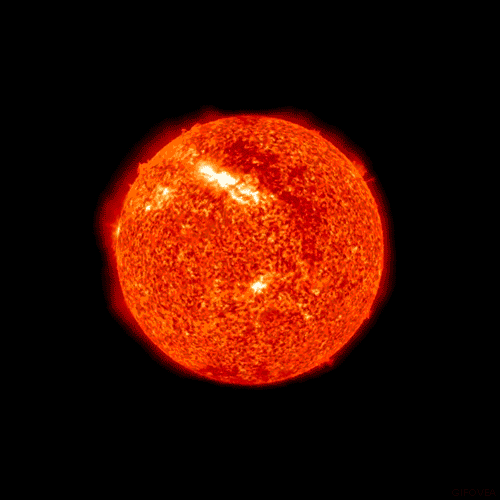
So you looked directly at the sun while trying to watch the solar
eclipse. Maybe you didn't read the warnings or couldn't get your hands
on a pair of eclipse glasses. Or maybe you did have them but couldn't resist, just for a few seconds, staring straight at the sun with your naked eyes, experts be darned.
Did you cause damage to your eyes? It's hard to tell immediately, experts say.
“Short-term
issues can include solar keratitis, which is similar to sunburn of the
cornea (the front part of the eye)," UnitedHealthcare Vision chief
executive Linda Chous told NBC News. “This can cause eye pain and light sensitivity, with symptoms often occurring within 24 hours after exposure.”
Trickier
to detect right away is any long-term damage to the retina in the back
of the eye. Staring straight at the sun can cause a condition called
solar retinopathy, which leads to a decrease or distortion of a person's
central vision, said Sveta Kavali, an ophthalmologist and retina
specialist at Saint Louis University.
“That damage is typically irreversible, and there's no treatment for this,” Kavali said in a video about
viewing the eclipse safely. “The way the damage occurs on a cellular
basis is that the UV rays from the sun induces a photochemical reaction
that damages the photo receptors of the retina, and the part of the
retina that's damaged is the part that's responsible for your central
vision.”
However, because the retina has no pain receptors, you
may not realize you've damaged your eyes until the symptoms appear,
anywhere from a few hours to a few days after the event, according to PreventBlindness.org. Signs to look out for include loss of central vision, distorted vision or altered colors.
Only
time can tell if one's retina is permanently damaged. Jacob Chung, the
chief of ophthalmology at Englewood Hospital and Medical Center in New
Jersey, told USA Today that
it doesn't take much time staring at the sun — “10 seconds is probably
too long and 20 seconds is definitely too long” — for the sun's rays to
damage uncovered or improperly covered eyes. He recounted one
particularly egregious case of solar retinopathy.
“I don't know if it was during an eclipse, but he said he was on LSD and looked at the sun for four straight hours,” Chung told the newspaper. “In his retina there was a pigmented spot, and his vision was very poor, needless to say. He was basically legally blind.”
Michael Schecter, an optometrist in Columbus, warned of the dangers
of watching the eclipse without proper eye protection two weeks ago in a
widely shared Facebook post. He was especially worried about people using phony glasses or children who were tempted to remove their eclipse glasses.
“Just
like sunburn to the skin, the effects are not felt or noticed
immediately,” Schecter wrote. “I have a great fear that I will have
patients in my office on Tuesday, Aug 22 who woke up with hazy, blurry
vision that I cannot fix.”
If you're concerned about your vision,
experts say, make an appointment with an eye doctor, who will likely
immediately be able to tell if you have damage related to the Great
American Eclipse of 2017. (We don't recommend trying this tongue-in-cheek “simple test” from the Guardian.)
In the 1960s, Louis Tomososki, then 16, partially blinded his right eye
after he and his friend stared at a partial eclipse without wearing
proper glasses. More than 50 years later, every eye doctor he has
visited has made the same observation a few minutes into the
examination.
“The first thing each one of them says is, oh, you looked at a solar eclipse sometime in your life,” Tomososki said.
‘20 seconds of burning’: Friends partly blinded after watching solar eclipse warn of dangers
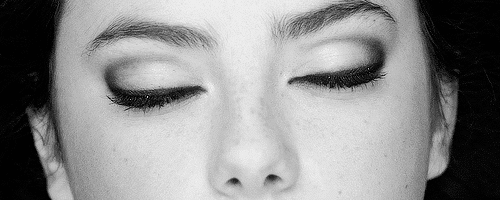

No comments:
Post a Comment